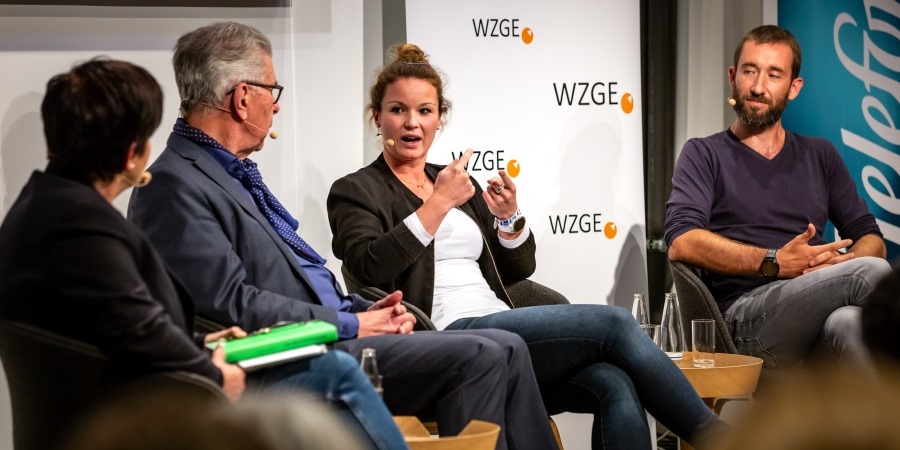On October 24 over 90 guests followed the discussion between the entrepreneurial legend Heinz Dürr, the Flixbus founder Daniel Krauss, and the author Katharina de Biasi in the Telefónica Basecamp.
Inspired by the book “Die Weltveränderer – Generation Y zwischen Erfolg und Ethik” published by Catharina de Biasi, the WCGE initiated a dialogue. In his introduction Dr. Martin von Broock, CEO at the WCGE, outlined the key questions: Are there ethical maxims for good entrepreneurship that remain stable over time? In which conflicts did they prove themselves? How far can this help us with future problems in the VUCA world? What can “old hands” and “young savages” learn from each other?
Moderated by the well-known journalist and publicist Dr. Ursula Weidenfeld, an active discussion followed. Heinz Dürr pointed out what was the focus of responsible entrepreneurship: “The revenues always have to be greater than the expenses.” To realize this, companies would have to be run as “social organizations”, in which a fair balance of interests between employees, customers, shareholders, and citizens are preferable. Subsequently, Daniel Krauss emphasized that Flixbus's motivated and qualified employees are a critical factor for success because the demand for good skilled workers is greater than the supply. Considering this, companies could not afford to treat employees inappropriately. In addition, the younger generations especially aspire to meaningful and authentic leadership constellations. Being asked how far the new generation Y differs from the others in this claim, Katharina de Biasi was thoughtful. In fact, according to their experience, generation Y displays the same spreads of this value as other generations. Furthermore it would be important to be careful that this debate about sense and self-realization is not caught in a bubble. Finally, there are still many jobs and tasks that simply allow little room for scopes.
Numerous questions from the audience underlined the great interest in this issue. Especially the participants of the 3rd Wittenberg Autumn Academy, who came from Lutherstadt for the discussion, took part. For the WCGE a circle was closed: The idea for the book project was created during the first autumn academy in November 2016 from a conversation between Heinz Dürr, at that time lecturer, and Katharina de Biasi, at that time a scholarship holder of the doctoral program "Ethics and good corporate governance". Meanwhile, the Heinz and Heide Dürr foundation encourages the annual format for students and doctoral students of economic and business ethics.

